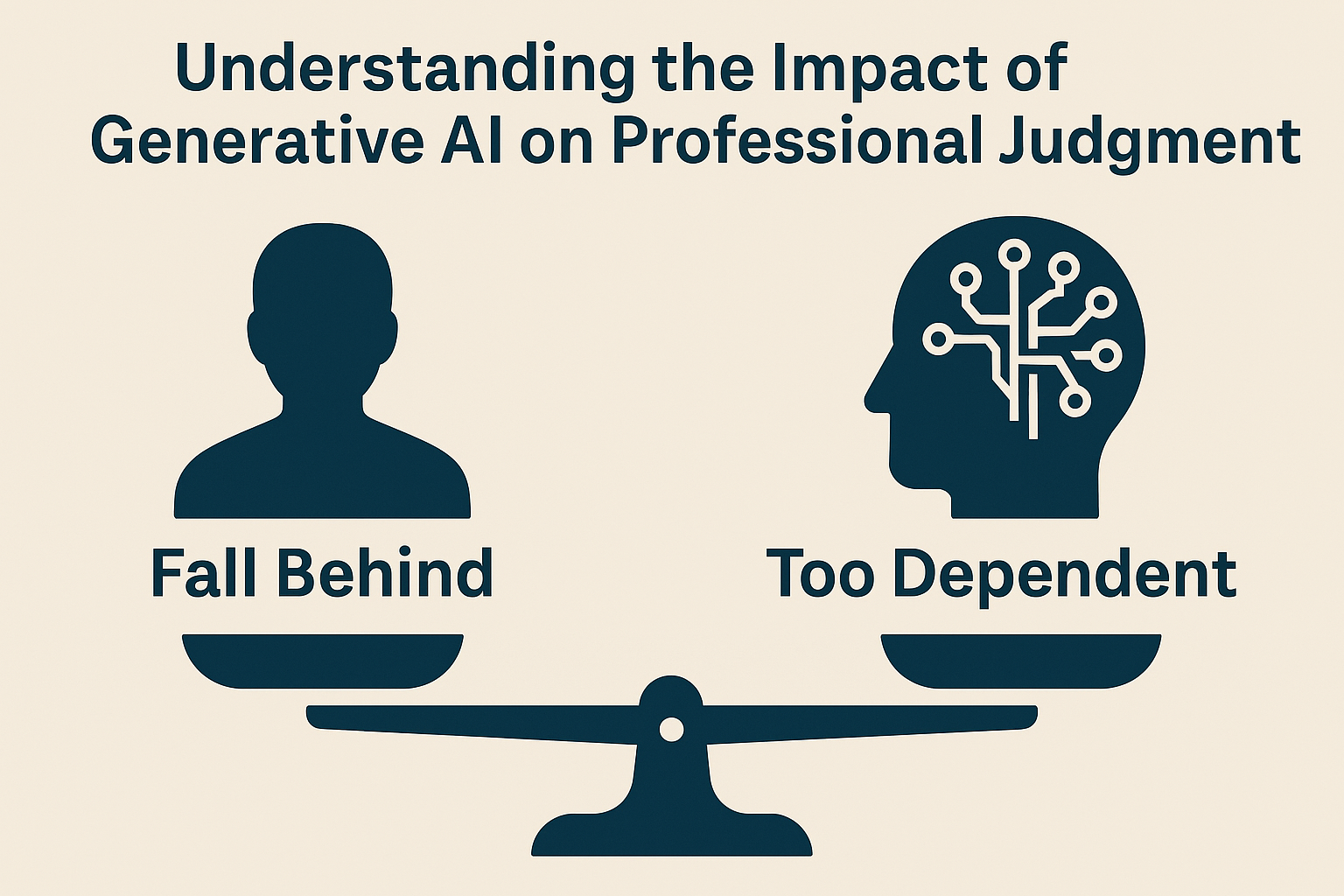Generative AI in Accounting and Auditing: Navigating the Balance Between Efficiency and Professional Judgement
Generative AI technologies, notably ChatGPT, are rapidly transforming the landscape of accounting and auditing. However, 22 interviews with professionals at Beever Struthers reveal accountants face a nuanced challenge: leveraging AI's efficiency without compromising the critical element of human professional judgement.
The Paradox of Using AI
While ChatGPT excels at automating routine tasks, such as summarizing documents and processing data, research indicates it subtly begins to encroach upon professional judgement territory. Its capacity to make assumptions or qualitative evaluations, though helpful, can inadvertently blur the lines of professional responsibility.
Context Loss in AI Summarization
Much of ChatGPT's current utility in accounting involves summarizing complex documents like policy guidelines, client data, and board minutes. However, the summarization process inherently risks losing essential context and nuanced details critical for informed decision-making and accurate audits.
Human Interaction Remains Crucial
The social elements of auditing—such as client interactions, onsite fieldwork, coaching, and training—are indispensable for developing sound professional judgement. These inherently human skills and interactions cannot be fully replicated by AI, underscoring the continued importance of interpersonal and experiential learning in the field.
Core Professional Skills Are Still Essential
Effective use of ChatGPT requires auditors to maintain their foundational skills, including critical thinking, skepticism, questioning, verification of source information, and collaborative human interaction. These competencies ensure AI is used responsibly and ethically.
Bottom-Up AI Adoption: Efficiency vs. Risk
Interestingly, ChatGPT's adoption within firms has been largely driven by junior staff seeking efficiency and automation of repetitive tasks. In contrast, senior professionals often perceive AI as a potential risk, particularly concerning audit quality and data security. This perspective leads to cautious integration at higher organizational levels.
Practical Use Cases for ChatGPT
Practical applications of generative AI in accounting and auditing include:
Addressing and drafting feedback
Audit testing and accounting guidance
Research on tax codes, industries, and buyer behavior
Developing training materials
Automating routine administrative tasks
Summarizing extensive documentation
Drafting professional communications, such as emails
In conclusion, while generative AI offers significant advantages in terms of efficiency and automation, accounting professionals must remain vigilant. Balancing AI usage with robust human judgement and oversight is crucial to maintaining integrity, accuracy, and ethical standards in auditing practices.
